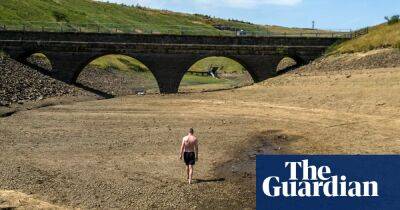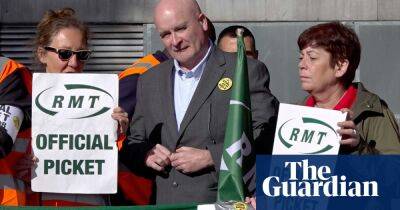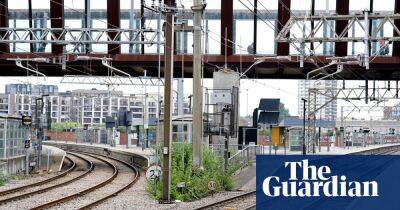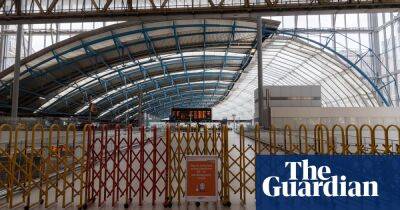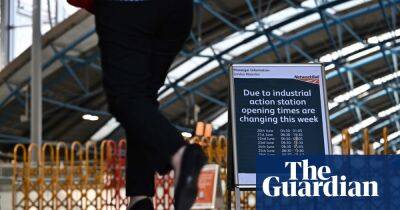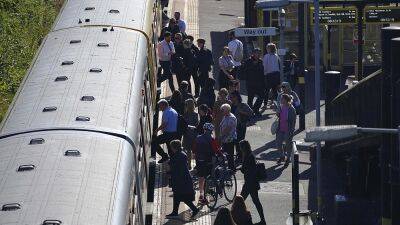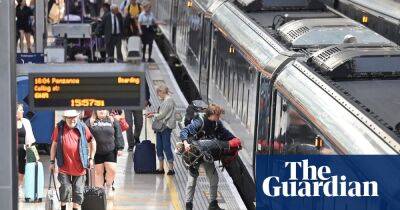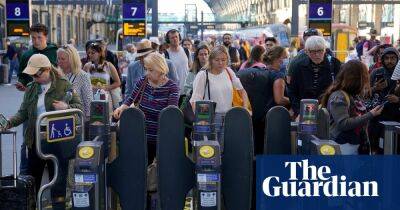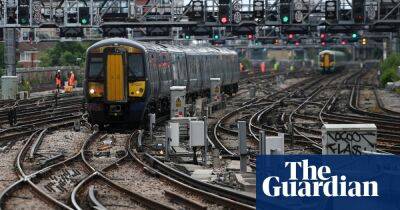Great Britain faces biggest rail strike in 30 years starting on Tuesday
The biggest rail strikes in three decades are due to start on Monday night, with trains cancelled across Great Britain for much of the week.
The first of three 24-hour walkouts by 40,000 RMT members, including signallers, maintenance and train staff, will start just after midnight on Tuesday morning, with only one in five trains running on strike days and halting services altogether in much of northern and south-west England, Wales and Scotland.
The strikes, over pay and attempts to reform the rail industry with post-Covid work patterns hitting commuter revenues, will cause six days of disruption, with trains limited to one an hour between 7.30am and 6.30pm on major intercity and urban routes. Services will start later and be reduced on subsequent days.
The action is being taken by Network Rail employees and onboard and station staff working for 13 train operators in England. The RMT said thousands of jobs were at risk in maintenance roles and that ticket office closures were planned, on top of pay freezes during a time of high inflation.
The walkout by signallers will have most impact, particularly in rural areas, leading to line closures in places such as Wales, where there is no direct dispute with the train operator. Most operators have told passengers to travel only if necessary on strike days. Northern Rail has advised passengers not to travel for the whole week.
While Conservatives have attempted to associate the union-backed Labour party with the strikes, Labour has pointed out that the transport secretary, Grant Shapps, and other ministers have refused to take part in talks.
Unions asked to meet ministers, saying the Treasury and Department for Transport control contracts and funding. Shapps said it was up to
Read more on theguardian.com
